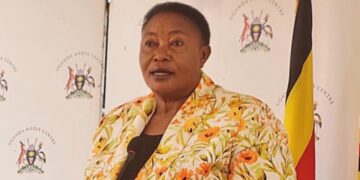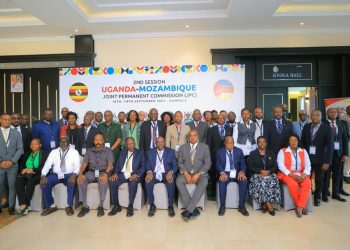OPINION
Editor, as Uganda strengthens its electricity supply to meet growing energy demands, the country’s youthful population presents a significant opportunity for the country to achieve this goal. By harnessing the potential of its youth, Uganda can address energy challenges and promote sustainable development within the electricity supply industry.
The Government of Uganda has set ambitious targets for expanding electricity access, aiming for universal coverage by 2030 (Uganda Energy Policy, 2023). Achieving this goal requires infrastructure investment, as well as a skilled workforce to drive innovation in the sector. There is an urgent need for professionals in renewable energy, grid management, and customer service. Uganda’s youth, with their fresh ideas and innovative approaches, are well-positioned to contribute to renewable energy projects, smart grid technologies, and more.
The involvement of Uganda’s youth in the electricity supply industry can catalyze transformation. Therefore, Youth organizations like the Uganda National Youth Council and NGOs should actively promote programs that prepare young people to engage in the energy sector. Initiatives such as training workshops, mentorship programs, and funding opportunities can equip them with the skills and resources necessary to thrive.
Additionally, Universities and Technical colleges should expand their offerings of specialized courses in Renewable Energy and Electrical Engineering. Doing so will foster a new generation of professionals equipped to handle the challenges of a rapidly evolving energy sector.
With the global shift toward sustainable energy, Uganda’s youth have the opportunity to lead initiatives promoting renewable sources like solar, wind, and hydropower. These efforts can range from innovative technology adoption to grassroots advocacy for renewable energy solutions. (United Nations Development Program, 2023). For example, youth entrepreneurs can provide affordable and sustainable solar energy solutions for rural communities without grid connectivity. By harnessing solar power, they can address energy shortages while contributing to climate change mitigation.
Youth involvement in advocacy campaigns can raise awareness about energy efficiency and the need for expanded electricity access. Community outreach programs, workshops, and social media campaigns can help inform Ugandans about responsible energy consumption and the benefits of renewable energy.
The role of youth in promoting sustainable energy practices is not just important it is essential. As future leaders, consumers, and innovators, young people hold the key to a cleaner and more equitable energy future. I therefore, I call upon the government of Uganda to empower the youth to take on roles in innovation, advocacy, and entrepreneurship, to ensure a brighter and more sustainable energy future.
By Mercy Nuwamanya,
nuwamanyamercy94@gmail.com








































